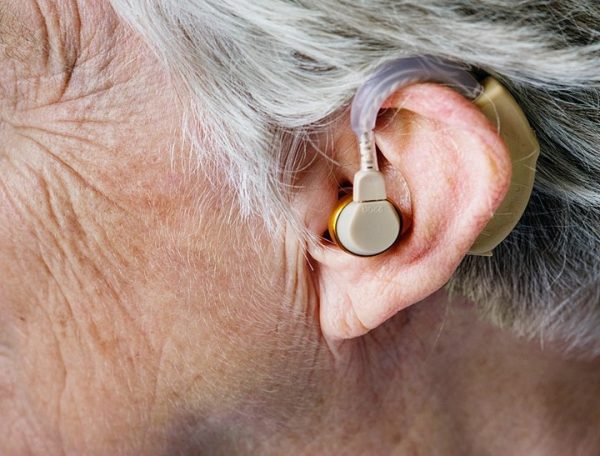
Hearing loss symptoms and treatment
Hearing loss is more common than we realize. Nearly 360 million people worldwide lack some or all of their ability to hear.
As we age we will have problem hearing. However, certain conditions also can affect anyone and result in loss of hearing.
How do we hear? Sound waves move through ear canal and pulse the ear drum and then moves tiny bones inside middle ear. They in turn tap the cochlea and cochlea converts mechanical signals to electrical. This signal passes through auditory nerve and transmits it to brain for further processing.
Why we suffer from hearing loss and what are the signs?
Signs of hearing loss:
- Requirement of frequent repetition of words
- Difficulty in following conversation with more than 2 people
- Other person sounds like mumbling
- Difficulty in hearing in noisy background – restaurants, malls, conferences
- Trouble hearing children and women
- Turning up TV and stereo to high volume
- Inappropriate answer to questions
- Ringing in years
- Stressed about hearing and complaining
- Annoyed at others for not talking properly
- Withdraw from social activities and meetings
Medical conditions:
- History of family with loss of hearing
- Medications that can harm hearing
- Diabetes, heart and thyroid problems
- Exposed to loud sounds for longer period and exposed to explosive noise
The three types of hearing loss are: Sensorineural, conductive and mixed hearing loss.
Sensorineural: Majority have hearing loss of this type. This occurs when there is a problem in sensory and neural structures in the inner ear. A sensorineural hearing loss reduces the intensity of sound hearing and can distort what we heard. People who suffer from sensorineural hearing loss struggle to hear words clearly. Aging, exposure to loud noise, medicines, illness such as meningitis, measales, genetics, trauma to head and inner ear malformation can lead to sensorineural hearing loss.
Conductive: It is more mechanical in nature – it is physical condition or disease that stops sound from being conducted from the outer to middle ear to inner ear where nerves are stimulated to carry sound to brain. Reason for conductive hearing loss can be treated. Wax buildup, fluid in middle ear, ear infection, foreign object lodged in, ruptured eardrum, trauma to ear.
Mixed hearing loss: In mixed hearing loss a sensorineural hearing loss along with conductive hearing loss. Inner ear, middle and outer ear will be affected making hearing loss worse. Treating conductive hearing loss helps to manage remaining sensorineural hearing loss.
Do you know noise levels are measured in decibels (dB)? Higher the number of noise the louder the noise. Any noise above 85dB is considered harmful. Some common sounds and decibels of sounds that we hear around are:
- Whispering – 30dB
- Conversation – 60dB
- Busy traffic – 70 to 85dB
- Motorbike – 90dB
- Listening to music on full volume through headphones – 100 to 110dB
- Plane taking off – 120dB
How to protect ears?
- Turn down the volume
- Avoid loud noise – if needed use ear plugs
- Give a break to your ears from loud noises
- Understand side effect of medications before consuming
- Better not to use cotton swabs as they poke inner ear
- Do not allow fluid to enter the ear
- Do not put any liquid inside ear without consulting a doctor
- Go for regular checkups
- Managing stress level is important
- Don’t be on phone for longtime
Hearing loss treatment:
Research shows that hearing aids help in improving social, emotional, psychological, physical well-being of people with hearing loss. Their earning power, communication, emotional stability, mental functioning, physical health all showed improvement with hearing aid and treatment.
Types of hearing aids: Apart from technological interventions other methods also help people to hear.
- Assistive listening devices (ALDs) or hearing assistance technology (HAT) – for all degrees of hearing loss. The cochlear implant helps millions of people.
- Hearing loss treatment professionals: Audiologists, hearing aid specialists and otolaryngologists – based on type of hearing loss
- Audiological advances for hearing loss treatment: Technical advancement to improve the quality of hearing aids are possible by audiological advance technology
- Hearing loss counselling: Speaking with a qualified professional helps to cope up with hearing loss. Counselling helps to understand the hearing loss and how to manage life with help of other hearing aids
- Medical advances for hearing loss treatment: At present sensorineural hearing loss is treated with hearing aids or cochlear implants. The other methods include (not restricted to) speech reading, auditory training, custom designed personal hearing aids, tinnitus maskers, assistance in specific listening situation – like telephone, TV or group listening devices.
If you think you or your loved ones have a hearing loss, go through test and talk to doctor. Both diagnostic testing and rehabilitation services are available in many countries.
Image credit:https://commons.wikimedia.org/wiki/File:In-the-ear_hearing_aid.jpg
Attribution: rawpixel.com / CC0
Author: Sumana Rao | Posted on: June 19, 2018
« Lupus symptoms and treatment Prevent infections during pregnancy »






















Write a comment